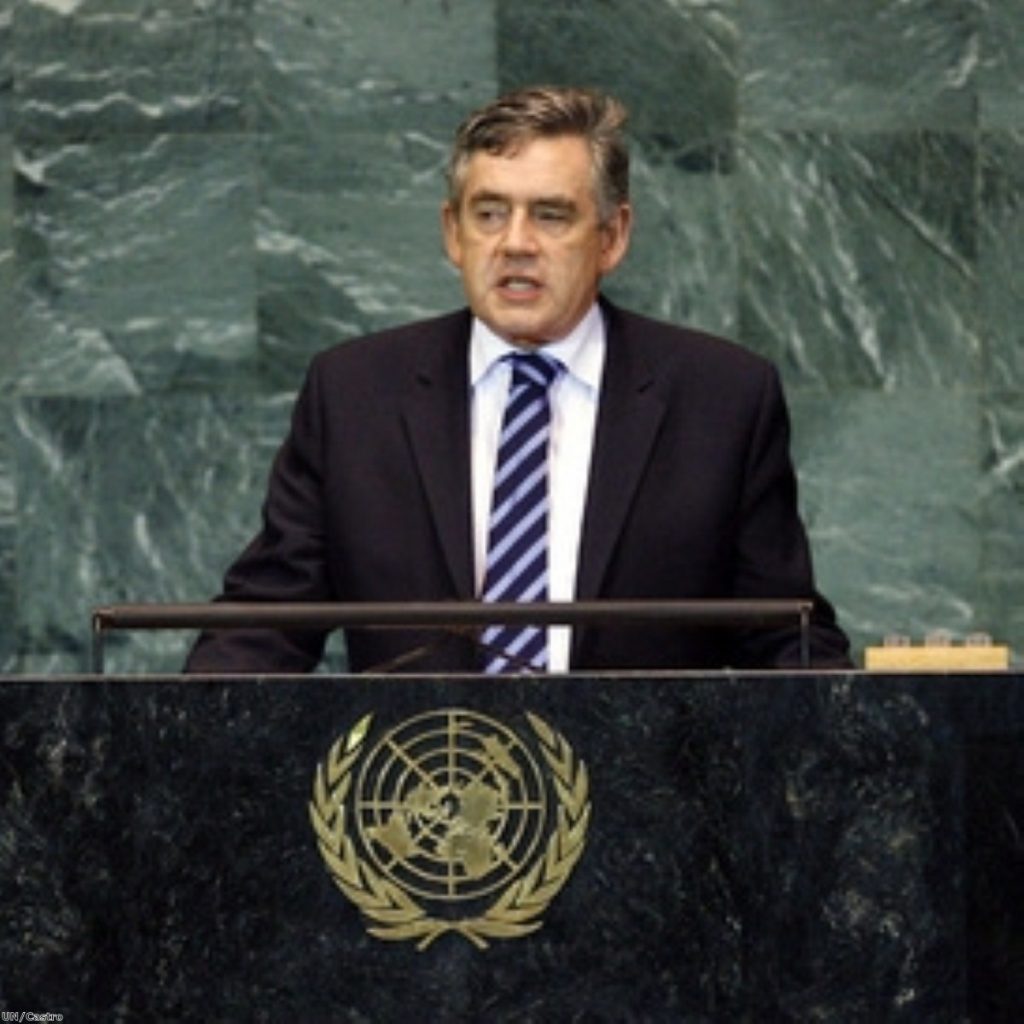Brown sets out stall at the UN
By Liz Stephens
Gordon Brown gave a largely unsurprising speech to the UN general assembly last night, setting out his key foreign policy objectives ahead of the G20 summit in Pittsburgh and the UN conference on climate change in Copenhagen.
Despite Downing Street’s best efforts to shroud the speech in mystery, refusing to release advance copies or any details of what was due to be discussed, the content was much the same as the content of an article that Mr Brown had written for The New York Times that morning.
Striking a cautious and at times almost doom-saying tone, Mr Brown said that world leaders had a “clear choice – to fail separately or succeed together”.


“Our world is now entering a six month period which may prove even more testing,” he said.
As expected, Mr Brown set out “five urgent challenges” for world leaders: “Halting climate change, renewing economic prosperity, fighting terrorism, ending nuclear proliferation and overcoming poverty.”
Mr Brown confirmed yesterday that he would be the first world leader to commit to attending the UN conference on climate change in Copenhagen in December “This is too important an agreement to leave to chance,” he said.
He warned that failure to reach a workable joint solution on climate change was not an option: “There will be no retrospective global agreement to reverse the damage we’ve caused.
“The road to a successful outcome in Copenhagen is not assured,” the prime minister warned.
Mr Brown said that he was calling for a new approach to financing action on climate change but did not elaborate on the details in his speech other than that it that it would involve a mix of public and private funding.
On Afghanistan, Mr Brown said: “None of us can be safe if we walk away from that country” – a warning to fellow assembly attendee Silvio Berlusconi, who has threatened to pull Italian troops out of the campaign in the face of a mounting death toll.
The prime minister issued a direct warning to Iran and North Korea over their plans to acquire nuclear weapons but also offered a “global bargain” on non-proliferation between states that have weapons and those that don’t.
He promised that Britain would offer civil non-nuclear power and access to a “uranium bank” to states who were willing to renounce nuclear weapons.
“If we are serious about the ambition of nuclear free world we will need statesmanship, not brinkmanship,” he said.
As anticipated, the prime minister confirmed that he would be considering reducing Britain’s planned Trident nuclear submarines from four to three.
On the economy, Mr Brown called for joint “proper planning of exit strategies together”.
He will be seeking at the G20 in Pittsburgh to ensure that countries such as France and Germany do not “switch off the life support system” by pulling out of global economic stimulus packages early.
Finally, Mr Brown reminded world leaders of the millennium goals for international development that had been committed to at the UN ten years ago.
At the current rate of success, he said, it would take “more than 100 years to deliver on some of our millennium goals – and 100 years is too long to wait.”
It has been a mixed 24 hours at the UN for Gordon Brown. Last night the prime minister was awarded the honour of world statesman of the year at a glittering ceremony by former US secretary of state Henry Kissinger.
“His leadership has been essential to our ability to overcome the moment of danger,” Mr Kissinger said.
However, his speech today was delayed by almost two hours by Colonel Gaddafi, who continues to be a thorn in the prime minister’s side since the Scottish government’s decision to release the Lockerbie bomber.









